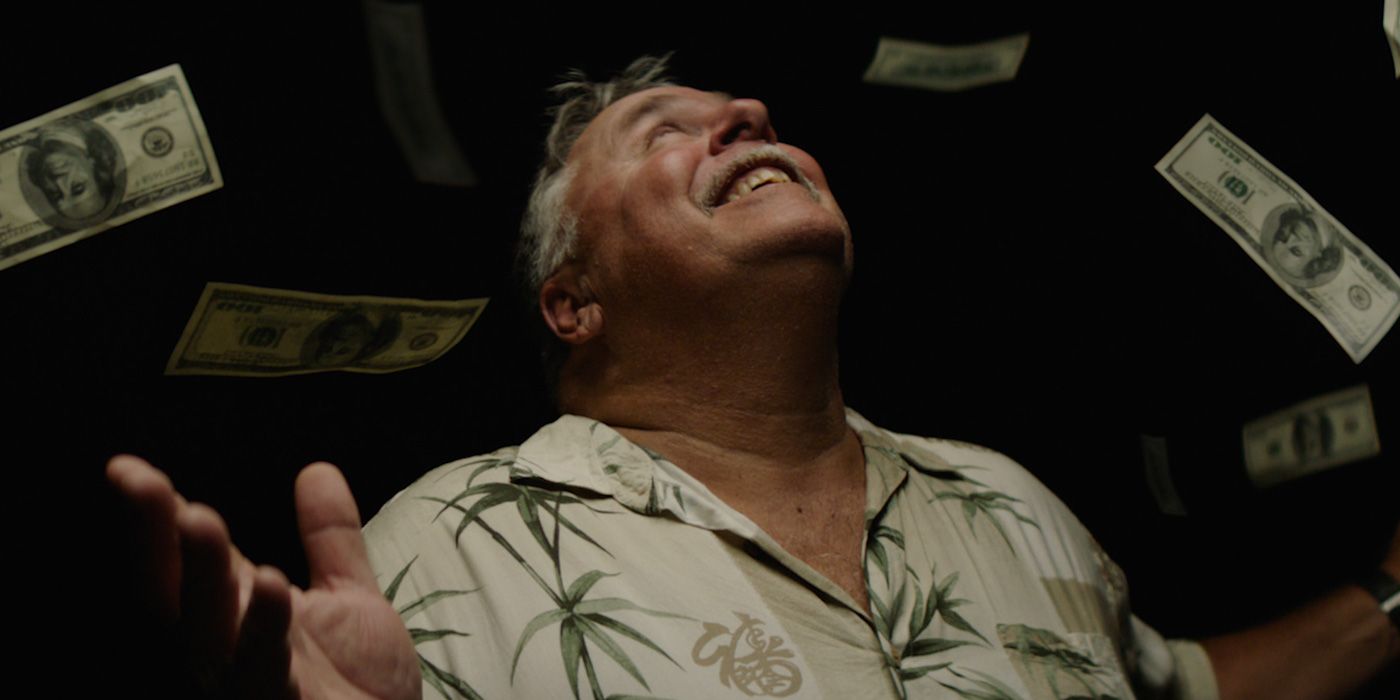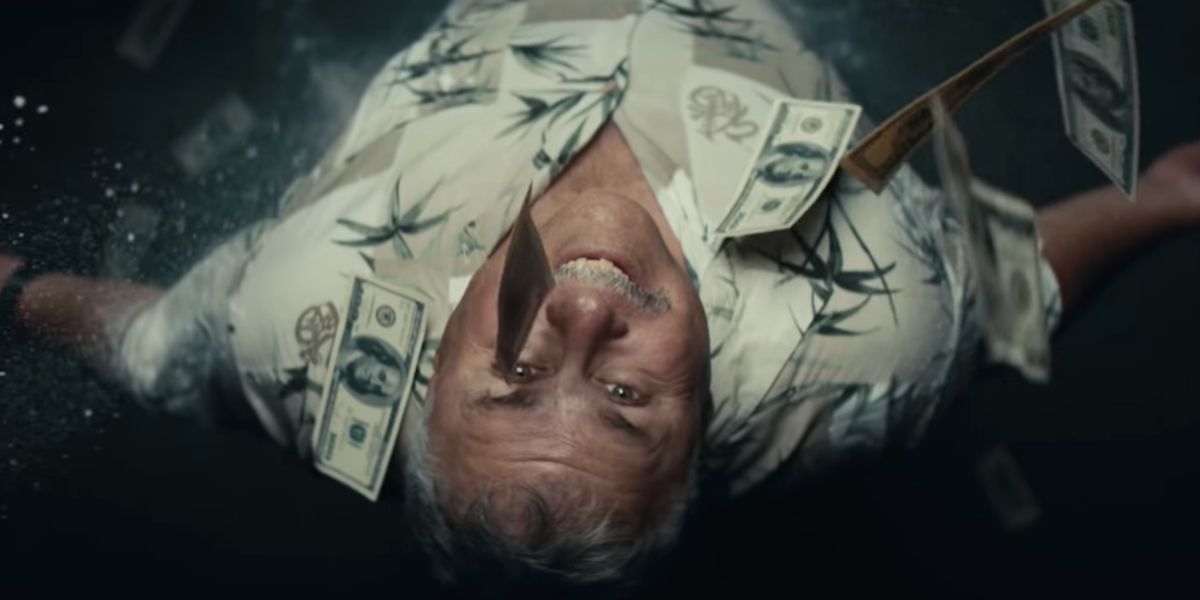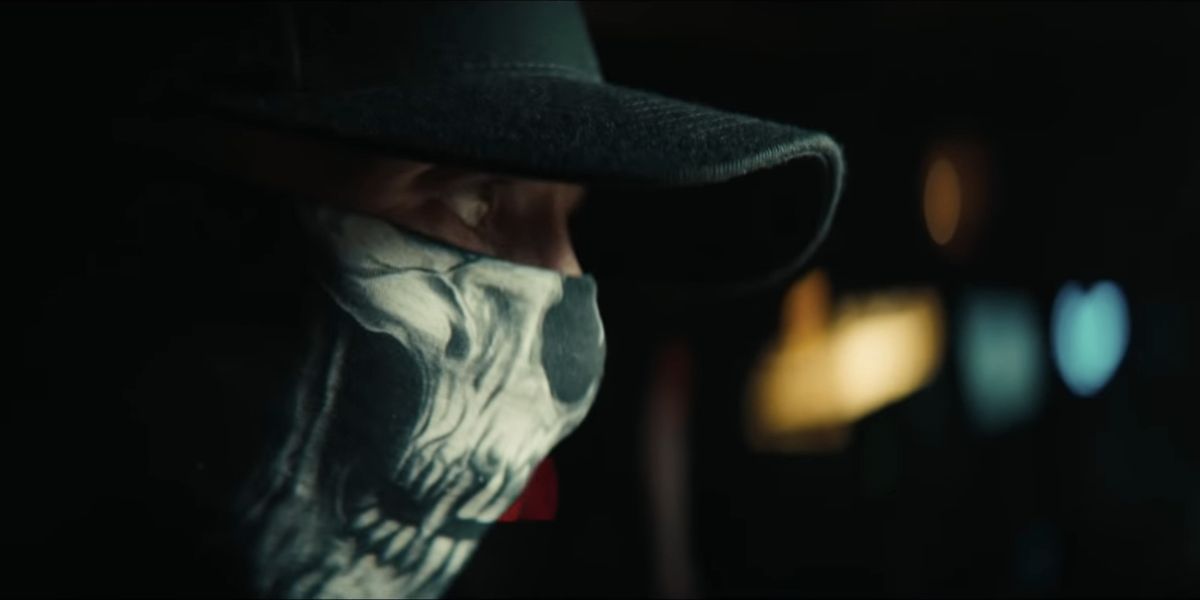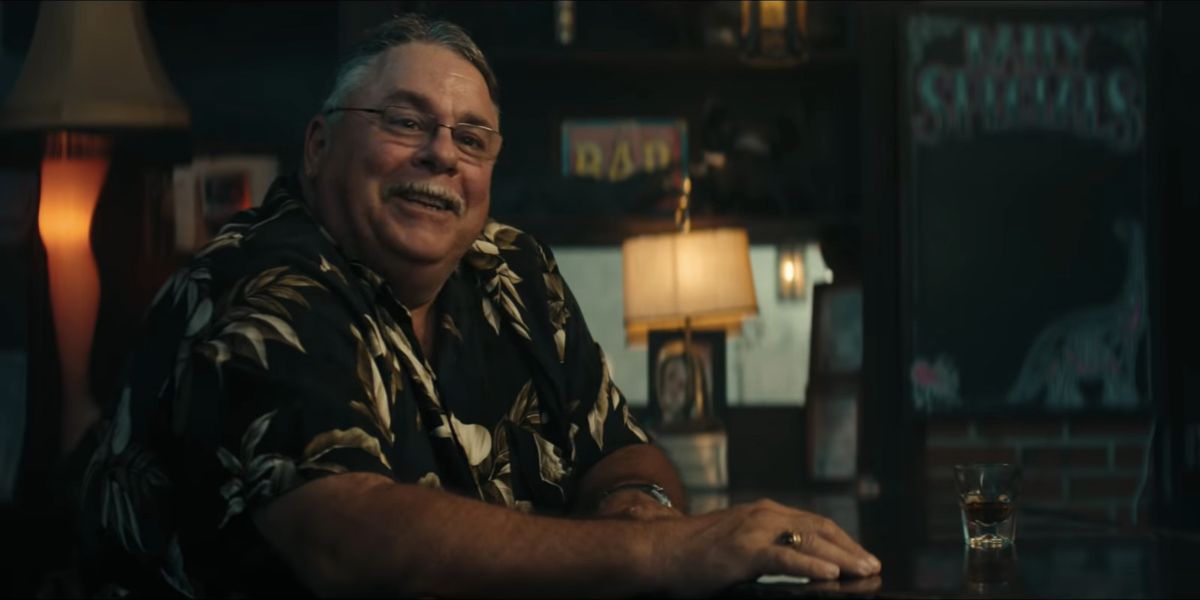The term "Florida Man" has become ubiquitous with wild, ridiculous, and incredulous stories of inept criminals who straddle the line between obscene and absurd. One such story is the focus of the new Netflix documentary, The Legend of Cocaine Island, true crime doc which offers a light and jolly touch to a genre which is frequently criticized for being overly morbid and violent.
In the aftermath of the economic recession brought about by the 2008 housing market crash, Rodney Hyden did what anyone whose livelihood was compromised by the financial circumstances would; he took a local storyteller at his word and embarked on a quest to dig up a buried treasure, millions of dollars in contraband. The Legend of Cocaine Island tells the true story of a Florida everyman who went outside the realm of law, order, and common sense in an effort to provide for his family. In the wake of a spate of grisly true crime documentaries, it's refreshing to see a story like this: as hilarious and unbelievable as it is sincere and empathetic, The Legend of Cocaine Island is an atypical documentary, to say the least.
Related: 10 Best True Crime Shows On Netflix
While promoting the film's debut on Netflix, director Theo Love (Little Hope Was Arson) spoke to Screen Rant about The Legend of Cocaine Island. He speaks about how refreshing it is to make a different kind of True Crime Doc, casting Rodney Hyden himself in the movie's extensive reenactment sequences, and shares some insight into the extensive process of creating a documentary from scratch.
The hot meme right now is typing the words "Florida Man" followed by your birthday into a search engine and post the first story that comes up.
Theo Love: I haven't seen that one. That's hilarious!
How did this "Florida Man" story catch your attention?
Theo Love: A couple of years ago, I was looking for a documentary idea. I made a crime documentary before, and I liked that, but I wanted lighter material, maybe a crime where there wasn't much of a victim. Florida, as you know, is home to ridiculous criminal stories. I went down the rabbit hole of "Florida Man" research, and came up with all those unbelievable stories, but when I came across Rodney's, it was almost as if it was structured as a movie already. It felt like the story was just a screenplay ready to be filmed.
Another thing I like about this is how there's very little violence in the story. Sometimes, I get kind of icked out by True Crime Docs. They can be a little morbid and I'm getting entertainment of true stories of people getting murdered horribly. The Legend of Cocaine Island is refreshingly non-violent, and I like that!
Theo Love: I like that, too. When I was making this, I was in kind of a dark period of my life, and I think that a lot of people around the country shared that sentiment, and I wanted to make a story that wasn't going into those darker, depressing areas. There are other films and filmmakers who do a wonderful job with those, but I wanted to find a story that was true, but was ridiculously entertaining, and that's what I got with Rodney's story. We didn't have to go to any of the dark territory for it to feel like a movie.
It really does feel like a movie in so many ways. Was there ever the thought to make a straight feature with this story, rather than the documentary format that you're already familiar with?
Theo Love: Yeah, there's always that thought. I've always wanted to be a narrative filmmaker, but documentaries, there's something so exceptional about them that I love. You can just pick up a camera and start filming something or someone, and you're making a documentary already. When we started this, it was just a really small indie project. But that's the great thing about Netflix; they've been changing the whole documentary landscape because they've come along and supported indie docs and are giving them a huge spotlight. That's what we're really excited about.
So there's a lot of reenactment in the film, and Rodney plays himself. Can you talk about directing him in those reenactments? Did he ever tell you, "no, this is the way it happened," leading you to shooting a scene differently, or stuff like that?
Theo Love: He wanted to be in the film to make sure it was authentic and real. I, of course, wanted that as well. I couldn't have asked for a better actor. There was something about Rodney, from the day I met him, that I was like, this is the kind of person you hope to find in a casting call. He didn't have that movie star quality to him. (laughs) It was kind of an obvious source from the get-go, and really fun. We had a blast making this film. We went to Puerto Rico. We all crammed in a tiny little plane, and all of us were terrified, Rodney was in there. Hopefully, that energy comes across and people have a blast watching it!
Did you shoot the reenactments in all of the real locations that they happened in real life?
Theo Love: We did our very best. There were a couple of situations where we were denied access to film. Particularly, a spot where a treasure might be buried. That request was denied, so we had to find a different spot, but it is on the island that Rodney went to to find the treasure.
One of the characters in the film, someone I found really intriguing was Dee, AKA The Cuban. His face is covered throughout all his interviews, but he's such an integral part of the story. I read that he approached you to be in the film. But was there ever a concern that he might not be game to play, so to speak?
Theo Love: Yeah. I hadn't seen him in any of the news articles. There was nobody who had gotten access to this person. And, with a name like "The Cuban," he just seemed like this mythical figure. We weren't planning on going after him, but as we started reaching out to people he was associated with, he heard about the project and was a little upset that nobody had interviewed him to get his side of the story! That's what I find with a lot of crime documentaries; getting access isn't as difficult as you might think, because everybody wants to tell their side of the story. I tell all my subjects, "I'm going to do my very best to give you the chance to tell your side and pit it against someone who might have a different perspective." I think that provides some interesting drama.
Was there anyone you wanted to interview but weren't able to?
Theo Love: Hmm, you know, I think we got pretty much everybody! There's always things, while you're making the film, that feel like, you wish you had an hour left in the day just to get that last shot one more time, or you wish that you could get this one interview, but in hindsight, I think we got everything we needed to tell the story the way we wanted.
Zooming out, way out to putting a documentary together, what is the process of working from your initial idea and how does that change based on the interviews?
Theo Love: My producing partner, Bryan Storkel, and I, we have done lots of projects. We both meet the subject as soon as possible, even before we know if we're going to move forward with the project. We go out and try to just hang out for a week. We try to get to know the people who we think might be subjects in the film, and try to meet them at their homes, in their environment, to try to get to know how we could possibly communicate who they are on film. Then we come back to L.A. and spend about three months of creative brainstorming and how we can weave these stories together. During that time, we're continuing to call our subjects and talking to them about how they want to tell their stories. Really, our approach is allowing real people to tell their stories. There's no narration by us; it's all the people who lived it, and in some cases, they're acting in it as well. Once we get the structure down, we go out and do the interviews, which are fairly pointed, because they're based on conversations we've already had. They're not scripted. I did have, like, four hour interviews, and so we just talked about everything about the story from every angle.
Related to that, how do you play interrogator when you can tell that they're not giving you, not what you want, but what you already know to be the truth based on your conversations? Has it ever happened that they're holding back when the cameras are rolling and it's time to lay down the truth, on the record?
Theo Love: When I'm preparing a subject for the interview, I say, "look, I want to give you the opportunity to defend yourself against some argument that might be pitted against you. I play the Devil's Advocate with them, and I position myself as that. Like, "what would you say if somebody accused you of lying?" And then they defend themselves on camera, so I don't have to be the camera. If somebody's a liar, and they lie on camera, it's gonna be found out. It's not a good idea to lie in any situation, but especially on camera.
What were some of the cinematic influences going into The Legend of Cocaine Island?
Theo Love: Definitely a lot of Coen brothers films were watched. We wanted to have a quirk in it, for it to feel a little bit odd. So the Coen brothers were a big one. We watched a lot of treasure hunting stuff. That's what we were looking for, to give the feeling that the audience was going on a real treasure hunt, to feel that adventure. A lot of adventure-type films. The Big Lebowski was probably one of the more specific films for this one.
More: 10 True Crime Podcasts You Need To Be Listening To
The Legend of Cocaine Island debuts March 29 on Netflix.




